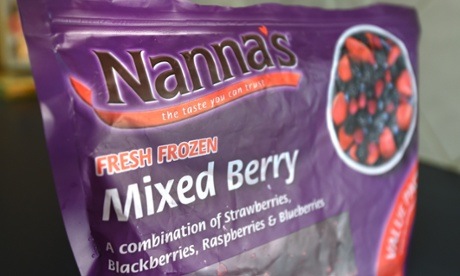
No extra surveillance of imported frozen berries has been put in place since the recent outbreak of hepatitis A, the Department of Agriculture has admitted.
The head of the department, Paul Grimes, and a host of senior bureaucrats fronted a Senate estimates committee on Monday, where they were questioned about the outbreak.
So far, 14 people have contracted hepatitis A. The outbreak has been linked with frozen berries imported by Patties Foods.
Grimes told the committee that the department has “acted decisively” on the outbreak by withdrawing and holding all Patties imports.
But on further questioning, the secretary admitted: “We have not made changes on surveillance rates for berries broadly at this stage.”
“We are looking quite actively at looking at across the board at frozen berries,” Grimes said. “We have sought further advice on that measure.”
Furthermore, no extra resources have been allotted to deal with the outbreak.
“If you’re asking me, have we increased staffing in frozen berry imports for food safety purposes right now then the answer is no, we have not,” deputy secretary of the Department of Agriculture Rona Mellor said in response to questioning by senators.
Greens senator Rachel Siewert, who is part of the rural committee that questioned the department on Monday, told Guardian Australia that failing to increase surveillance was “ludicrous”.
“The current regime failed in preventing the contaminated product entering the country in the first place, the government is not moving quickly enough to prevent further potential infection,” Siewert said.
“It is clear that our border protection is sluggishly reactive rather than preventative when it comes to keeping imported products safe. This is not assuring for any Australian consumer.”
Parliamentary secretary for agriculture Richard Colbeck told the committee that agriculture minister Barnaby Joyce “has made it clear that he would like increased testing on areas where we become aware of food safety problems”.
Prime minister Tony Abbott last week pledged that all Patties products would be subject to screening.
“If a food import is regarded as high risk, there is 100% screening,” Abbott said. “If it’s regarded as low risk, there is surveillance, which is 5% screening. We have moved to 100% screening of these sorts of imports until this matter is resolved in a way which is very protective of the health of the Australian public.”
Shadow assistant health minister Stephen Jones said: “Nine days have passed since the outbreak, five days since the guarantee of more rigorous inspections and yet the government’s response remains uncertain.
“The government should extend the screening of produce imports until such time as certain public health assurances can be guaranteed. It must take a more direct role in the screening process and it must provide regular reporting and update the public.”
The Department of Agriculture has been working with the Department of Health and Food Standards Australia and New Zealand (Fsanz) on how best to handle the outbreak.
Fsanz is working to verify that the outbreak did come from Patties imports.
“We don’t have the test results yet,” Colbeck said, adding that there is a “strong circumstantial link” with the product and the hepatitis outbreak.
Fsanz will front the Senate estimates committee on Wednesday.
The Department of Agriculture has shed 303 of the 2,602 jobs in its compliance division since June 2013.
Liberal senator Bill Heffernan said that creating appropriate and effective food importation standards was a “global problem”.
“It’s a bloody huge problem and politics should get the bugger out of it,” Heffernan said.
